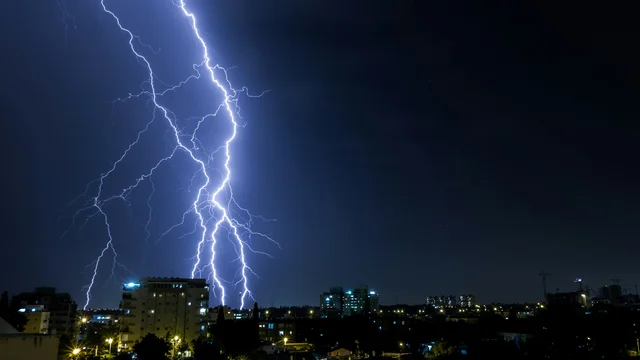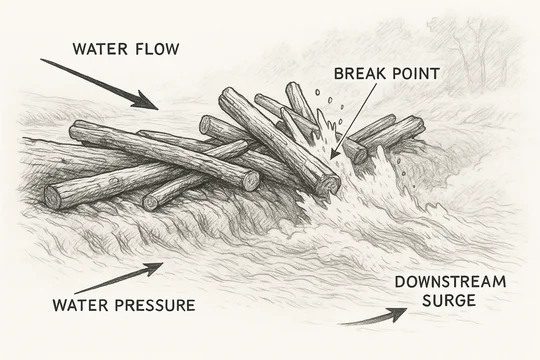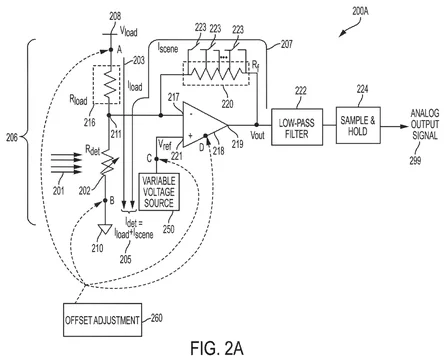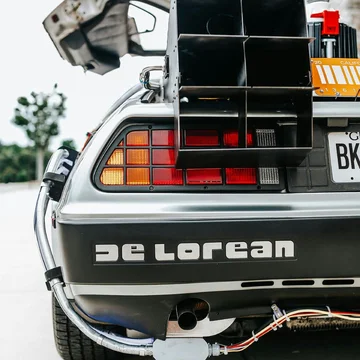
We've talked a lot about how hard it can be to plead indirect infringement and willfulness before Chief Judge Connolly. He set forth his views on the subject in ZapFraud, Inc. v. Barracuda Networks, Inc., C.A. No. 19-1687-CFC-CJB (Mar. 24, 2021), where he held that a complaint cannot form the basis for an allegation of willful infringement in the same action:
[I]n the absence of binding authority to the contrary from the Federal Circuit and Supreme Court, I will adopt the rule that the operative complaint in a lawsuit fails to state a claim for indirect patent infringement where the defendant's alleged knowledge of the asserted patents is based solely on the content of that complaint or a prior version of the complaint filed in the same lawsuit. And I conclude that the operative complaint in a lawsuit fails to state a claim for willfulness-based enhanced damages under § 284 where the defendant's alleged knowledge of the asserted patents is based solely on the content of that complaint or a prior version of the complaint filed in the same lawsuit.
That has been Chief Judge Connolly's rule since at least 2021, and we've occasionally noted when other judges have chosen a side on the issue.
In 2023, for example, we very briefly noted when Federal Circuit Judge Bryson, sitting by designation in the District of Delaware, addressed this question in DSM IP Assets, B.V. v. Honeywell International, Inc., C.A. No. 23-675-WCB, 10 (D. Del. Nov. 2, 2023). There, he surveyed the case law going both ways, and held that claims of both indirect infringement and willfulness can be supported by the filing of the initial complaint.
Ultimately, however, judges have gone different ways on this issue, and the Federal Circuit has not yet addressed the question.
Plaintiff Challenged Clear Precedent, Results Were as Expected
With that background, Chief Judge Connolly issued a very interesting opinion yesterday in Inari Medical, Inc. v. Inquis Medical, Inc., C.A. No. 24-1023-CFC (D. Del.).
The defendant in Inari moved to dismiss willfulness and indirect infringement allegations under Chief Judge Connolly's well-established case law, and the plaintiff opposed.
Specifically, the plaintiff noted Chief Judge Connolly's statement that there is no controlling authority on this issue, and argued that Judge Bryson's decision in DSM, while he sitting by designation, should guide the Court's thinking here:
[Plaintiff] Inari . . . appreciates that this Court has previously answered this question [of whether a complaint can serve as notice] in the negative “in the absence of binding authority to the contrary from the Federal Circuit and Supreme Court.” ZapFraud v. Barracuda Networks, 528 F.Supp.3d 247, 252 (D. Del. 2021).
Since ZapFraud, however, Judge Bryson has weighed in on this issue while sitting by designation in this District. In DSM, Judge Bryson addressed whether “knowledge of a patent gained as of the time of the infringement complaint can serve as knowledge of the patent for” indirect and willful infringement without having to file an amended complaint. . . . After reviewing the available case law—including ZapFraud—Judge Bryson concluded “a majority of courts that have addressed th[e] issue[s] have held that a charge of post-filing willfulness” and “post-suit indirect infringement” “can properly be predicated on knowledge of the patent as a result of the filing of . . . the original.” . . . Judge Bryson decided to “follow the majority rule," reasoning “it would serve little purpose to require [a] plaintiff to go through the formality of filing an amended complaint” or a new suit “in order to be allowed to assert knowledge of the patents during the period following the filing of the original complaint.”
You could read this as implying that Judge Bryson's opinion while sitting by designation should be treated as if it were "binding authority" on Judge Connolly (which it is clearly not)—although you could also view it as a mere suggestion that Judge Bryson's reasoning should be persuasive.
Either way, Chief Judge Connolly did not bite. Instead, he took the opportunity to clarify and reinforce his view that a complaint cannot provide the knowledge to support willfulness or indirect infringement claims in that same suit.
Specifically, the Court rejected the idea that requiring a party to file a second suit to pursue indirect infringement and willfulness claims served no purpose, because it helps address potentially difficult privilege issues:
To establish both indirect and willful infringement, the plaintiff must not only demonstrate that the defendant had knowledge of or was willfully blind to the existence of the asserted patents; it must also demonstrate that the defendant had knowledge of or was willfully blind to the direct infringement of the patents by another party. . . . Parties accused of directly or indirectly infringing a patent often consult with counsel to assess whether there are grounds to the accusation. And if an infringement accusation (direct or indirect) is leveled in a lawsuit against the party, the party will certainly discuss the merits of the accusation with its trial counsel. Thus, as I noted in ZapFraud, requiring the plaintiff to bring a second suit to assert claims of postsuit indirect infringement or to seek post-suit willfulness-based enhanced damages "avoid[s] thorny privilege and attorney work product issues that arise when a defendant relies on the opinions of its trial counsel to form its own opinion about whether it infringes the asserted patents." . . . In my view, removing the need for the defendant to weigh and act on and the Court to parse and resolve these thorny issues is significant.
Inari Medical, Inc. v. Inquis Medical, Inc., C.A. No. 24-1023-CFC, at 6 (D. Del. Oct. 14, 2025).
The Court noted that the second suit would be reduced in scope due to estoppel. It also accepted that the ZapFraud rule might require a party asserting method claims to send notice before filing, potentially sparking a DJ action—but it noted that the plaintiff here had not explained "why that is unfair or unwise."
Thus, the Court maintained its prior rule that an allegation of indirect infringement or a claim of enhanced damages based on willfulness cannot be based on the complaint in the same action:
I remain of the view that a complaint filed in a lawsuit cannot provide the required knowledge for either a claim asserted in that lawsuit of post-suit indirect infringement or a demand in that lawsuit for willfulness-based enhanced damages.
Id. at 7.
Then the Court Sua Sponte Decided to No Longer Entertain Motions to Dismiss Willfulness Claims
After addressing the plaintiff's arguments, however, the Court went further. It found, sua sponte, that a willfulness claim cannot be subject to a motion to dismiss at all:
The first issue was raised by the parties in their briefing. The second issue was not. . . . The second issue is whether a district court has the authority to address in the context of resolving a Rule 12(b)(6) motion a request by the defendant to preclude the plaintiff from pursuing enhanced damages under § 284 based on the plaintiffs failure to plead adequately a claim of willful infringement. I have decided that it does not. . . .
Id. at 9.
Why not? As the Court explained, willfulness is not a freestanding cause of action. Instead, it is a basis for enhanced damages on an infringement claim:
[S]ome parties and courts have characterized a demand for enhanced damages based on alleged willful infringement as a "cause of action" even though § 271 of the Patent Act, which creates causes of action for direct, induced, and contributory infringement, does not mention or suggest such a thing as "willful infringement." . . .
Regardless of whether a demand for enhanced damages under § 284 is based on willful conduct or on behavior that is wanton, malicious, deliberate, consciously wrongful, flagrant, done in bad faith, or characteristic of a pirate, such a demand is not a claim that can be dismissed pursuant to Rule 12(b)(6). Rule 12(b)(6) allows a party to "assert ... by motion" the defense of "failure to state a claim upon which relief can be granted." Fed. R. Civ. P. 12(b)(6) (emphasis added). Enhanced damages obtainable under § 284 are relief that can be granted upon a claim of direct, induced, or contributory infringement. They are not a claim upon which relief can be granted. And because they are a form of relief, a plaintiff need not allege in the complaint facts that show it is entitled to them.
Id. at 10.
The Court held that it had erred in granting three prior motions to dismiss willfulness claims:
And on at least three occasions, I have granted a defendant's motion pursuant to Rule 12(b)(6) to "dismiss" a plaintiffs demand for enhanced damages, albeit with the caveat that I would not preclude the plaintiff in those cases from seeking discovery related to whether the defendant willfully infringed the asserted patents or from asking for leave to amend its complaint to pursue enhanced damages if the plaintiff obtained evidence of willful infringement by the defendant. See VLSI Tech. LLC v. Intel Corp., 2019 WL 1349468, at *2 (D. Del. Mar. 26, 2019); Deere & Co. v. AGCO Corp., 2019 WL 668492, at *6 (D. Del. Feb. 19, 2019); Dynamic Data Techs., LLC v. Brightcove Inc., 2020 WL 4192613, at *5 (D. Del. July 21, 2020). I realize now, however, that I erred in granting those motions.
Id. at 10.
In closing, Chief Judge Connolly made clear that he will not permit motions to dismiss willfulness claims going forward:
In sum, neither a demand for damages under§ 284 nor an accusation of willful infringement is a claim for relief subject to dismissal under Rule 12(b)(6). For that reason, I denied Inquis' s motion insofar as it sought dismissal of Inari's demand for enhanced damages based on willful infringement. 7.16.25 Tr. 30: 143 1:22. And going forward, I will not entertain in a Rule 12(b)(6) motion a request to dismiss, or otherwise preclude a plaintiff from seeking, a demand for enhanced damages under § 284.
Id. at 12.
This Is a Big Change
This is a significant change. These days, one of the major topics of discussion when filing a patent complaint in the District of Delaware is how to avoid a motion to dismiss wilfulness allegations, which can depend a lot on which judge is case is assigned to the case.
Willfulness is important not just because of the possibility of enhanced damages, but also because it expands the scope of discovery and can have a significant impact on trial themes for both sides. Getting willfulness discovery for "free," essentially, could be very significant.
That said, there are a few things to note. First, this does not apply to indirect infringement. Those allegations will still face the same vulnerability to a motion to dismiss as they always have before Chief Judge Connolly.
Second, the Court also held, in the same opinion, that a complaint from the same suit still cannot "provide the required knowledge" for indirect infringement or enhanced damages. That means that, while willfulness / enhanced damages claims should sail past the 12(b)(6) stage, they could still be subject to summary judgment.
Third, obviously, this decision only applies in Chief Judge Connolly cases—at least for now.
Will the Other Judges Follow Suit?
It will be very interesting to see whether other judges follow Chief Judge Connolly here. The decision makes intuitive sense and follows from the statutory precedent cited.
On the other hand, I'm sure it will be briefed intensively, and the parties in those cases are going to have a lot to talk about. As the Court's opinion acknowledges, opinions from the Federal Circuit and other courts have often characterized willfulness as a claim or cause of action, and judges have regularly granted motions to dismiss it. We'll have to see!
If you enjoyed this post, consider subscribing to receive free e-mail updates about new posts.





